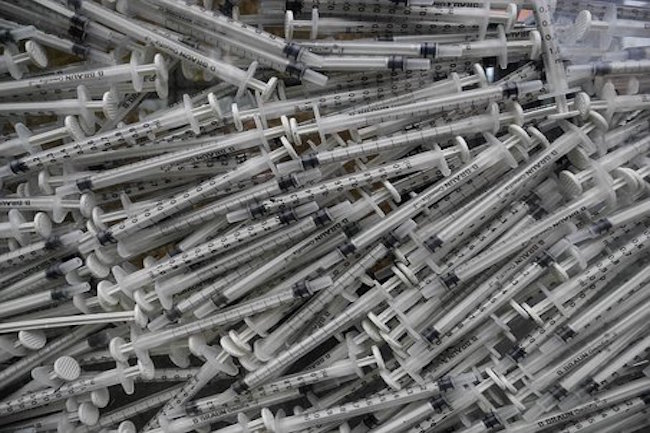Over 100,000 reports of psychiatric disorders after CV1984 v@kscene by Celeste McGovern for Life Site News
More than 100,000 reports of psychiatric symptoms following COVID shots include hallucinations, anxiety, confusion, sleep disorders, psychosis, and suicide
One week after receiving a first dose of Pfizer/BioNTech’s COVID-19 vaccine, a previously healthy young woman in her 20s presented to the emergency department at Sharp Memorial Hospital in San Diego, complaining she was urinating frequently. Her family was more concerned that she was increasingly anxious, not sleeping well, not mentally acute, and was fixated on the belief that she was suffering from kidney disease and irritable bowels. She had no history of mental illness but was convinced that she had contracted COVID-19 and that her body was “shutting down.” Her family also noticed that she had trouble communicating and seemed to have difficulty with motor control at times. Blood and urine tests taken on this visit were normal, although her heartbeat was fast and her blood pressure was elevated, according to the case report published earlier this month in Frontiers in Neurology. She was sent home.
The following day, the young woman returned to the hospital, this time complaining that she was hearing accusatory voices. A COVID PCR test was negative, but further testing revealed two elevated liver enzymes. Her blood pressure was still up, and her heart was racing, so she was hospitalized. The following morning, she took off all her clothes in her hospital room and defecated on the floor.
Doctors began treating the young woman with psychiatric drugs, but she only became “increasingly psychotic,” according to the case report. A prescription of lithium was tried, and then abandoned, when she became catatonic. She was put on another drug, Risperidone, and then suffered a grand mal seizure.
Her memory was intact, and the young woman responded to doctors’ questions, but only in short sentences, in a monotone flat voice. She was lethargic with lingering symptoms of catatonia. She could walk, but slowly, and had to be prompted to move.
A lumbar puncture (spinal tap) and analysis of the young woman’s cerebrospinal fluid (CSF) revealed elevated white blood cells which was evidence of inflammation within her nervous system. Spinal fluid and blood tests for a list of viruses from herpes simplex and Epstein-Barr virus to HIV were negative.
“The constellation of symptoms (spontaneous defecation, catatonia, sudden encephalopathy without metabolic or infectious findings) coupled with the preliminary CSF results and the history of deterioration after SARS-CoV-2 vaccination led to a strong clinical suspicion of an autoimmune-mediated encephalitis driven by the vaccine,” states the paper written by doctors at the Salk Institute of Biological Studies, Sharp Memorial Hospital, in San Diego, and the Center for Immunity, Infection and Inflammation at the University of California-San Diego School of Medicine in La Jolla, CA.
Vaccine encephalitis
Eventually, CSF tests confirmed the diagnosis of Anti-N-methyl-D-aspartate receptor (anti-NMDAR) encephalitis – an autoimmune condition characterized by neuropsychiatric syndromes and the presence of antibodies against glutamate (GluN1) receptors detectable in the spinal fluid.
Anti-NMDAR encephalitis has been associated with viral illnesses such as Japanese encephalitis, Epstein-Barr virus, and COVID infection. It has also been associated with vaccinations against H1N1, yellow fever, TdaP-IPV booster, and Japanese Encephalitis. New onset psychosis has been associated with other vaccines as well, including for rabies and smallpox.
The 2018 documentary Malcolm is a Little Unwell depicts the ordeal of British veteran foreign affairs correspondent Malcolm Brabant’s descent into psychosis after he got a yellow fever vaccine to travel.
After ruling out all other potential causes, the young woman was treated with immunoglobulins and rituximab – a drug used for autoimmune conditions – and steroid therapy. She gradually improved and, 61 days after her first dose of the COVID shot and 45 days in the hospital, she was discharged with “minor neurological deficits.” She remained on anticonvulsant drugs for seizures three months later but was able to return to work.




